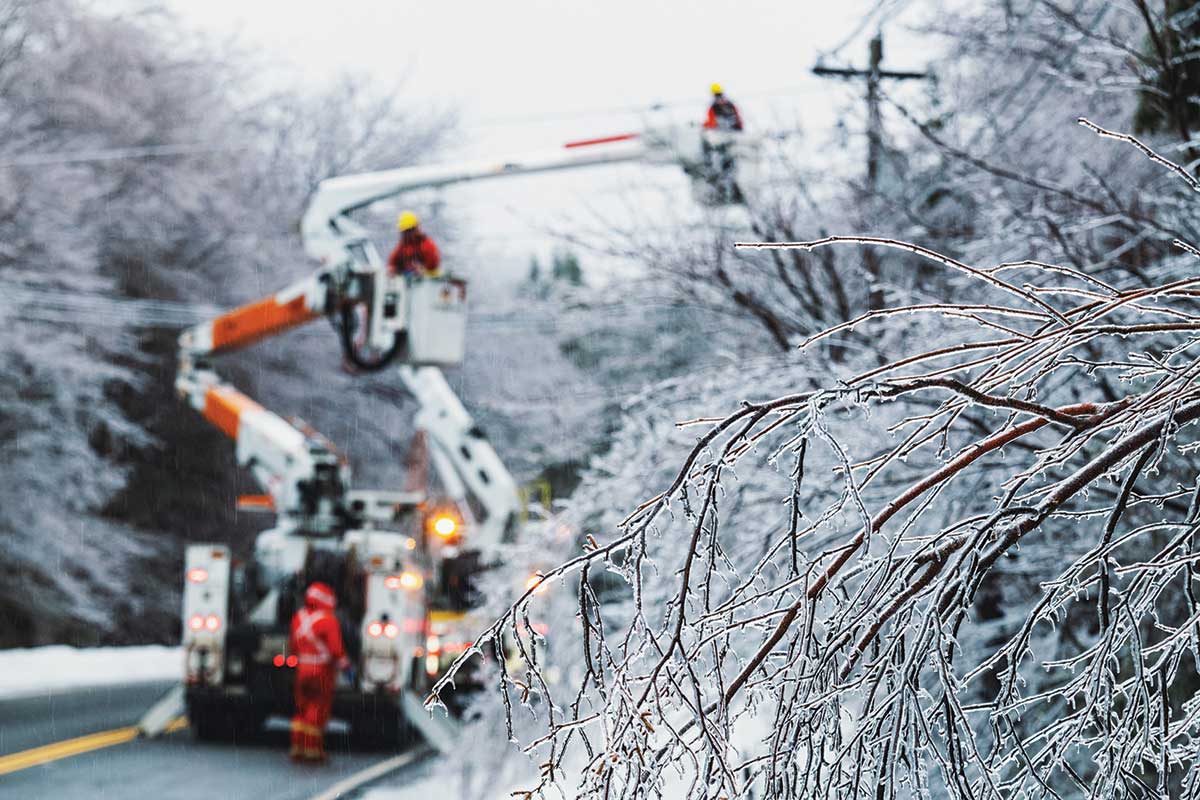Here’s a fact you might not know: You don’t have to touch a power line to be in danger. High-voltage electricity can jump to anyone who gets too close. Fortunately, there are many ways to stay safe around power lines, whether they’re in the air or on the ground.
• First and foremost, always keep a safe distance from power lines. Whether you’re playing outdoors with your children or working on landscaping, stay well away from power lines and other equipment your co-op uses to get electricity to your home.
• Always be aware of the location of power lines, particularly when using long tools like ladders, pool skimmers and pruning poles. Be sure to lower your long equipment when you’re moving it. Carry ladders and other long items horizontally whenever possible. Look up before raising a ladder or long tool to make sure that it will not come within 10 feet of power lines. Use wooden or fiberglass ladders outdoors instead of metal ladders, which conduct electricity.
• Be careful when working on or around your roof—installing rooftop antennas and satellite dishes, installing or cleaning gutters, or doing repair work. Never go up on the roof in windy or bad weather.
• Electricity and water don’t mix. Using or charging electrical devices near water can be deadly—even if they’re waterproof. Remember to keep electrical devices far away from water sources in your home.
• Never trim trees near power lines—leave that to the professionals. And never use water or blower extensions to clean gutters near electric lines.
• Never touch the wires leading to your home. If you need to work around these lines, call your electric cooperative and we can temporarily disconnect your service.
• Call 811 before you dig. Buried utility lines are another potential hazard. If you need to dig for any reason, call 811. Within three business days, someone will come to locate and mark your underground lines so you can avoid them.
• Never fly drones, kites or other objects near power lines. Airborne toys can damage power lines or become tangled and create a potentially dangerous—or even deadly—situation. Never try to retrieve any object near electrical lines or equipment yourself.
• Don’t let children climb trees that are near overhead power lines.
• Contact your electric cooperative immediately to report downed power lines, which can carry an electric current strong enough to cause serious injury or even death. Electricity tends to move from a high-voltage zone to a low-voltage zone—and it could make that journey through your body.
• You should always assume that all downed power lines are live. You can’t tell just by looking at a power line whether it’s energized. Move at least 35 feet away from it and any nearby object it’s touching, such as a fence or a tree limb. The ground around power lines also could be energized.
• The proper way to move away from a downed line is to shuffle away with small steps, keeping your feet together and on the ground at all times. This minimizes the potential for an electric shock.
• If you see someone who is in direct or indirect contact with a downed line, do not touch the person—or you could become the next victim. Call 911 and your cooperative for help.
• Do not attempt to move a downed power line or anything else in contact with it by using an object such as a broom or stick. Nonconductive materials including wood or cloth can conduct electricity if even slightly wet.
• Be careful not to touch or step in water near a downed power line.
• Do not drive over downed power lines. If your car comes into contact with a downed power line while you’re inside, stay in the car. Honk your horn to summon help, but warn others to stay away from your car. If you must leave your car because it’s on fire, jump out of the vehicle with both feet together and avoid simultaneous contact with both the car and the ground. Shuffle away from the car, keeping both feet on the ground at all times.


